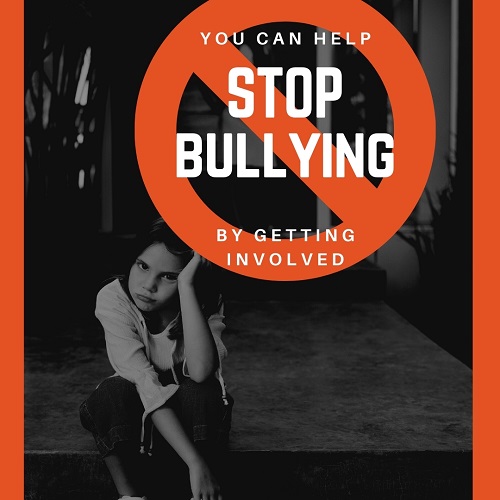Recognizing And Responding To Bullying
by Kathy Slattengren, M. Ed., Priceless Parenting (sign up for monthly parenting newsletter and receive 20+ printable charts for kids and parents)

Bullying affects the lives of most children at some point. Your child may witness bullying, be bullied or bully somebody. Discussing bullying with your kids prepares them for responding to these difficult situations.
Kids will have conflicts with each other. They will tease and sometimes be rude or mean to others. While some behavior may be inappropriate, bullying goes beyond this.
Defining Bullying
Bullying is a repeated misuse of power with the intent to cause harm. These factors define bullying behavior:
- Imbalance of Power: People who bully use their power to control or harm. The people being bullied may have a hard time defending themselves. Kids may have more power due to things like age, physical size or popularity.
- Intent to Cause Harm: Actions done by accident are not bullying. The person bullying has a goal to cause harm.
- Repetition: Incidents of bullying happen to the same the person over and over by the same person or group.
In her book
The Bully, the Bullied and the Bystander, Barbara Coloroso explains "Breaking the cycle of violence involves more than merely identifying and stopping the bully. It requires that we examine why and how a child becomes a bully or a target of a bully (and sometimes both) as well as the role bystanders play in perpetuating the cycle. A deadly combination is a bully who gets what he wants from his target; a bullied child who is afraid to tell; bystanders who either watch, participate in the bullying, or look away; and adults who discount bullying as teasing, not tormenting;"
When Your Child is the Bully
If your children have bullied someone, it's important to help them build skills so that they find better ways of acting in the future. Punishing them by grounding them or taking away privileges may only encourage them to find ways to avoid being caught in the future.
Instead, ask them to write about what happened or discuss it together:
- What was the sequence of events that happened?
- What influenced your actions?
- What will you do differently next time so this doesn't happen again?
- What type of amends do you think you should make?
- How will you reconcile with the person you've hurt?
Struggling to answer these tough questions can help kids learn from their poor choices. While they may be tempted to blame others for their actions, the goal is for them to realize their own role in the situation and take responsibility for the results of their actions.
Children who bully often have been bullied themselves. One divorced mom told me how her 12-year-old son was beaten by his dad one day. The following week she received three calls from the school regarding her son bullying other kids. Since he had previously never been involved in any bullying activity, she connected it to his recent experience with his dad. She helped him find better ways to respond.
When Your Child is Being Bullied
If your children come to you distraught because of being bullied, listen and show compassion. Work to understand their perspective on the situation without immediately trying to solve it. Make sure your children receive the message that you love them, believe them and understand their feelings.
Most children who are being bullied do not tell their parents. If you notice your child hasn't wanted to go to school lately or is exhibiting other behavior that has you concerned, bring it up. You might say something like "I noticed that you haven't wanted to go to school lately. What's going on?" Keep asking questions until you feel you really understand.
If you find out your child is being bullied, other steps you can take are:
- Help your child think through ways of getting away from the bully.
- Roleplay how to calmly tell the bully to stop.
- Explore ways to engage with other kids away from the bully.
- Meet with your child's teachers or counselor. Develop a plan for keeping your child safe, particularly during vulnerable times like lunch, recess and going to and from school.
- Contact police or school resource officer if the actions are criminal.
The
Stop Bullying site has many helpful ideas for both kids and parents.
When Your Child is the Bystander
Children who watch another child get bullied are also affected by the bullying. They may feel guilty for not intervening on behalf of the victim. They may be afraid to act or not sure what to do.
Help your children think through these situations and feel empathy for the victim. Discuss appropriate ways to support the victim. Simple actions like these can help the victim:
- Move closer to stand next to the victim.
- Ask the victim to go do something else to get away from the situation.
- Say something to the bully like "Stop it!"
- Get help from an adult.
Developing the courage to stand up for victims isn't easy. You play an important role in guiding your children to treat everyone with respect and dignity. Teaching children these
moral values will help reduce bullying.